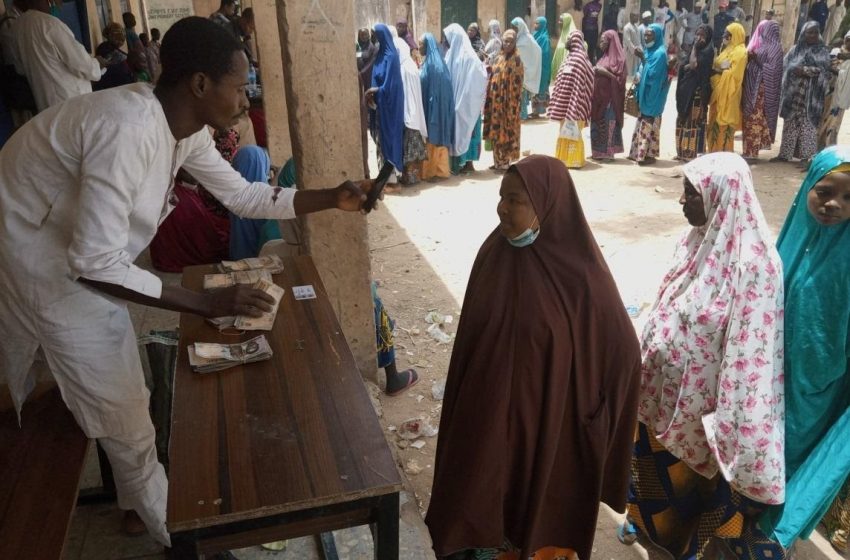This story is a result of Orodata’s Micro-Grant support to journalists to produce in-depth investigative and data-driven stories on thematic areas like Development, Healthcare, Covid-19, and Covid-19 Vaccine.
It began with a 183 km journey from Lagos to Ede-South local government area of Osun state. According to the data made available by the National Social Safety-net Coordinating Office (NASSCO), Ede-South LGA has 3,673 households and 12,947 individuals captured in the National Social Register (NSR).
I headed to the social development office at the local government where I met and engaged Mrs Oladejo, the Desk Officer in charge of the CCT to shed light on some of the issues raised by the masses concerning the programme. She was succinct as she navigated between the success stories and challenges that have accompanied the programme since inception not leaving out the fact that the last cash transfer made to beneficiaries was in June 2020 and the prolonged delay has aggravated the poor condition of the beneficiaries. She said, “Many of the beneficiaries that went into petty trading are now out of business”.
During an engagement session to hear from the horse’s mouth, the beneficiaries could not hold back their emotions while narrating how the prolonged delay in payment has affected their means of livelihood. “The little trade I started with the previous cash transfer is on the brink of collapse because of the unsteady payment. It is my only means of income,” said one of the beneficiaries.
Another beneficiary narrated the repeated embarrassment her fellow contributors are giving her. She said, “I joined a contributory thrift saving scheme popularly known as ‘Ajo’ but since the payment has stopped, I’m unable to meet up with my thrift contribution dues and those involved have been coming to my house regularly asking me to pay the accumulated debt”.
A key finding shows the deviation of NCTO from the framework designed for the programme to take off. The programme framework for beneficiaries to be identified during payment is via the following means:
- Credentials: NCTO will issue CCT programme identity cards containing bio-metrics of beneficiaries upon enrolment of the eligible households.
- Special provisions: Each beneficiary has a unique identifier encoded in barcode and will be employed for cashing out.
- Electronic end-to-end payment: The payment system will transfer cash benefits directly from NCTO at Federal level to beneficiaries using commercially available payment services and minimize the role of intermediaries.
This crude method has aided extortion and illegal deduction of beneficiaries’ payments which has formed about 5 percent of cases reported to the Grievance Redress mechanism (GRM) a body established to receive complaints from both beneficiaries and non-beneficiaries on issues such as poor service delivery, lack of or inadequate information on programme activities, payment-related issues, and staff misconduct (including bribery and corruption-related behaviour, intimidation, sexual harassment).
Countries Implementing Cash Transfer/Social Investment Programmes
Conditional Cash Transfer (CCT) programs started in the late 1990s in Latin America and have become the antipoverty program of choice in many developing countries in the region and beyond.
Argentina: Argentina adopted universal allocation per child, established in 2009. Eligibility for the scheme was focused on families without formal employment and earning less than the minimum wage who ensured their children attended school, received vaccines and underwent health checks. By 2013 it covered over two million poor families and by 2015 it covered 29 percent of all Argentinian children.
Bangladesh: The Female Secondary School Assistance Project, established in 1994 is a form of CCT program which focuses only on school attendance for girls and unmarried by providing tuition and stipends.
Egypt: Program Minhet El-Osra started in 2009, it is currently being piloted in an urban slum in Cairo, Ain Es-Sira, and 65 villages in rural Upper Egypt by the Egyptian Ministry of Social Solidarity
South Africa provided CCT in 2009 to poor households through the grant child support initiative.
This Investigative Report is supported by Orodata Science
Written by Israel Olatunji

